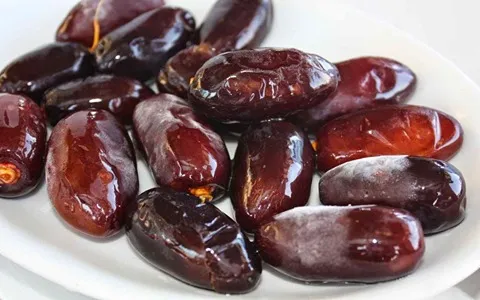
Understanding Diabetes
Before delving into the connection between dates and diabetes, let's gain a better understanding of this metabolic disorder.
Diabetes is a condition characterized by high blood sugar levels, resulting from either insufficient insulin production or the body's inability to use insulin effectively.
There are two main types of diabetes - type 1 and type 2.
Type 1
this type diabetes is an autoimmune condition where the body's immune system mistakenly attacks and destroys insulin-producing cells in the pancreas.
This type of diabetes usually requires individuals to take daily insulin injections to survive.
Type 2
this type of diabetes, on the other hand, is more common and typically develops over time due to various factors such as excess body weight, sedentary lifestyle, poor dietary choices, and genetic predisposition.
People with type 2 diabetes may be able to manage their condition through lifestyle changes, medication, or a combination of both.

Dates and Blood Sugar
Dates are a type of fruit obtained from the date palm tree.
They are widely consumed across the globe due to their natural sweetness and rich caramel-like flavor.
As a sweetener substitute for those with diabetes, dates provide an interesting alternative to refined sugar.
Although dates contain natural sugars, including fructose, they have a lower glycemic index (GI) compared to other sweets.
The glycemic index measures how quickly a food raises blood sugar levels when consumed.
Foods with a low GI are less likely to cause rapid spikes in blood sugar levels.
Research suggests that the low glycemic index of dates can help support blood sugar control in individuals with diabetes.
A study published in the journal Nutrition Journal found that consuming dates led to a slower increase in blood glucose levels compared to consuming glucose or white bread alone.
Additionally, dates contain dietary fiber, which can also slow down digestion and the absorption of glucose into the bloodstream.

Nutritional Profile of Dates
Apart from their impact on blood sugar levels, dates offer various health benefits due to their rich nutritional profile.
Here's a closer look at the nutrients found in dates:
Fiber
Dates are an excellent source of dietary fiber, with around 7 grams per 3.5 ounces (100 grams).
Fiber aids in digestion, helps control appetite, and promotes regular bowel movements.
For people with diabetes, the fiber content in dates is particularly beneficial as it can help improve blood sugar control.
Potassium
Dates are a good source of potassium, an essential mineral that plays a crucial role in maintaining healthy blood pressure levels and supporting heart health.
Adequate potassium intake is essential for individuals with diabetes as it helps reduce the risk of cardiovascular complications often associated with the condition.
Magnesium: Dates are also a source of magnesium, a mineral that contributes to over 300 biochemical reactions in the body.
Magnesium plays a role in regulating blood sugar levels, supporting nerve and muscle function, and promoting bone health.

Incorporating Dates into a Diabetic-Friendly Diet
While dates offer nutritional benefits and have a lower glycemic index compared to refined sugar, it's important for individuals with diabetes to consume them in moderation and as part of a balanced diet.
Here are some tips for incorporating dates into a diabetic-friendly eating plan:
Portion Control
Dates are sweet, and it's easy to consume too many in one sitting, potentially leading to spikes in blood sugar levels.
Ensure proper portion control by limiting consumption to a few dates at a time.
Balanced Meal Planning
Add dates to a meal or snack that includes a source of protein, healthy fats, and additional fiber-rich foods.
This can help slow down the absorption of sugars into the bloodstream and prevent blood sugar spikes.
Try Date Paste
Date paste can be a healthier alternative to refined sugar in recipes.
Made by blending dates with water, it can be used as a natural sweetener in baked goods, smoothies, or sauces.
Consult with a Registered Dietitian
If you have diabetes, working with a registered dietitian can help you develop a personalized eating plan that incorporates dates in a way that supports blood sugar control and overall health.
In conclusion, dates can be a suitable sweetener alternative for individuals with diabetes due to their low glycemic index and rich nutritional profile.
Consuming dates in moderation, along with a balanced diabetic-friendly eating plan, can help support blood sugar control and provide valuable nutrients.

